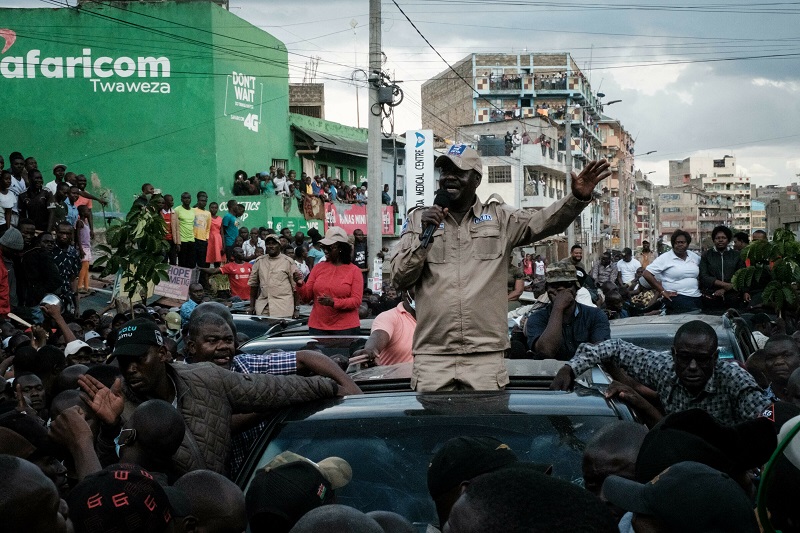Violence broke out during protests last week, so the head of Kenya’s police force has said that any planned protests by the opposition on Monday will not be allowed to happen. The Inspector General of Police, Japhet Koome, was quoted as saying to the press on Sunday that “we will not allow violent demonstrations.” “The protests they are planning for Monday are illegal and will not be allowed,” he said, adding that his force was ready to keep the peace and would arrest anyone carrying offensive weapons.
But the veteran leader of the opposition, Raila Odinga, who has called for protests against President William Ruto over the high expense of living on Monday and Thursday, remained defiant. Odinga has called on people to take to the streets to demonstrate against Ruto. During a service at a local church on Sunday, he addressed the congregation by saying, “I am asking our supporters and all Kenyans to come out and join the peaceful demonstrations.” He stated, “I want to tell Mr. Ruto and the IG Koome that we are not going to be intimidated, and I intend to follow through on that promise.” “Tear gas and police are not going to frighten us,” they said.
The protests that took place on Monday (which were also not authorized by the police) descended into violence, with riot officers firing tear gas and water cannon at people who were throwing rocks and setting tires on fire. According to the police, a university student was killed by police fire and 31 officers were injured during ongoing battles in Nairobi and resistance strongholds in western Kenya.
Related Posts
More than two hundred individuals were taken into custody, including a number of prominent politicians from the opposition, while Odinga’s own convoy was attacked with tear gas and a water cannon. “You all saw what happened last week, and we won’t allow that to happen again, where hooligans come to town to loot and destroy people’s property and businesses,” Koome said.
After defeating Odinga in an election that Odinga’s rival claimed was “stolen,” Ruto has been in office for the past six months, and this incident was the first significant act of political violence to occur since then.
Many people in Kenya are having trouble putting food on the table because of the high cost of essential products, the falling value of the local currency, and the record drought that has caused millions of people to go hungry. Even before he leaves the country on Sunday for a trip to Germany and Belgium, President William Ruto has already demanded that the head of the opposition put a stop to the activity.
On Thursday, President William Ruto said, “I am telling Raila Odinga that if he has a problem with me, he should face me, and he should stop terrorizing the country.” The demonstrations from the week before proved to be expensive for Nairobi, which lost more than half of its daily revenue as a result of people staying away from the central business district, according to Johnson Sakaja, the city’s governor.
According to the country’s Deputy Vice President, Rigathi Gachagua, the expense of the demonstrations was $15 million. During the course of the election campaign, Mr. Ruto made a concerted effort to present himself as the savior of the oppressed and made a commitment to better the lives of average Kenyans, also known as “hustlers.”
Since then, however, he has eliminated subsidies for gasoline and maize flour, which is an essential component of a diet. In addition, Kenya’s energy regulatory authority announced a price increase for electricity that will take effect on April 1 last week, despite the fact that Ruto insisted in January that there would be no increase of this kind.

